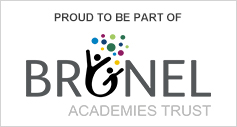Service Families
At Wyndham Park Infants' School we have a small number of children from service families (approx. 9 in 2021) due to our proximity to Salisbury Plain and nearby military bases. We had expected these numbers to grow with the significant relocation changes that the military faces but our numbers have remained stable over the last few years.
We welcome admissions applications from service families living within our catchment area. Please follow the Local Authority timelines for normal admissions into Reception and contact the school for more information about whether we have spaces for transferring in-year.
Contact Us
Wyndham Park Infants' School (YR to Y2) – 01722 334594 or wpadmin@wyndhamstmarks.uk
If you have older children please contact:
St Mark's C of E Junior School (Y3 to Y6) on 01722 333497 or smadmin@wyndhamstmarks.uk
Also for younger children:
St Mark’s Pre-School – (aged from 2) 01722 330382 or admin@stmarks-preschool.co.uk
To apply for a school place: https://admissions.wiltshire.gov.uk/prefs.php
As a first point of contact, families arriving in the area can meet with our Family Support Worker, Norma Hallett.
Norma works across Wyndham Park and St Mark's and she can help parents settle quickly and meet other families.
Contact her by email - nhallett@wyndhamstmarks.uk
We have several systems in place to support families during deployment or prolonged separation including play therapy sessions, recordable photo albums to send to their family member and army teddy bears to borrow from school.
In the past we have received extra funding through the Ministry of Defence Support Fund. This was used to train staff in support techniques and counselling, and we are now better placed to give appropriate and timely support to our service families and children as and when the need arises.
The first step is to make contact. We know ‘one size doesn’t fit all’ so we are here to listen and help where needed. To summarise, our aim is to ensure all military families have consistent and continuous provision for their children’s learning, pastoral care and special educational needs, to ensure that they progress and achieve their undoubted potential.
You may find some of the following links useful
- Child Education Advisory Service (CEAS) – Information and support to Service families and eligible MOD civilians on all aspects of the education of their children in the UK and overseas
https://www.gov.uk/childrens-education-advisory-service
- Military Kids Connect (MKC) is an online community for military children (ages 6-17) that provides access to age-appropriate resources to support children dealing with the unique psychological challenges of military life.
https://militarykidsconnect.health.mil/
- Network of state schools in England providing support and advice regarding Service Children and produced a handbook for schools:
SSAFA helps the families of all armed forces personnel and veterans, whether you need immediate help or long-term support.
Service Pupil Premium
The Department for Education introduced the Service pupil premium (SPP) in April 2011 in recognition of the specific challenges children from service families face and as part of the commitment to delivering the armed forces covenant.
State schools, academies and free schools in England, which have children of service families in school years reception to year 11, can receive the SPP funding. It is designed to assist the school in providing the additional support that these children may need and is currently worth £310 per service child who meets the eligibility criteria. Service parents with children in state-funded schools in England should ensure the school is made aware of their Service status so that the School Census can be completed accurately.
Ideas and initiatives we have explored for spending money to support children:
- Play Therapy
- Homework Support Groups
- Additional Needs support for newly arrived
- Access to Family Support Worker
- Access to nurture group/social skills/mental health/mentoring
At present funding is being used to support:
- enhanced transition (small group work, additional visits, photo books, family liaison etc)
- emotional support (1:1 or small group support to target play, social and emotional issues with nominated TAs)
- confidence-building (i.e. group projects with nominated teachers/TAs)
- training for key staff (teaching and TA) to be able to support particular learning needs (i.e. Makaton training)
- swift and easy referral (where gaps in pupil progress are identified and actioned immediately following admission).

